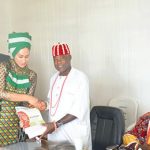Government policies in Nigeria are rarely informed by rigorous research. More often than not, it does appear that planning is done amid the near absence of hard facts. This aversion for information-based planning partly explains why most incumbent governments overturn the policies of their predecessors while introducing new and often conflicting policies. This practice is not costless as the masses bear the brunt of such policy inconsistencies. More disturbing however is the origin of the ideas driving these policies.
For the most part, indigenous researches are taken to be inferior to imported/expatriate evidences. These imported policies mostly are misfits due to the lack of proper grounding in the peculiar realities of the Nigerian context. The world over, successful countries are typically those that prioritise the researches from their universities and other research institutions. This they do by allocating sufficient funds to these institutions.
In these countries, research outputs are not only critical drivers of their economies, but also the harbinger of rapid transformation in technology, infrastructure and the like. Little wonder that our gluttonous politicians run to these places with our stolen money for holidays.
It is incontrovertible that we can neither grow nor develop without funding policy-inclined researches. There is, therefore, a correlation between research outputs and economic transformation. Evidences of the societal functionality of this important nexus abound with Israel, China, USA, UK among others reaping the dividends from research. The proponents of the “Change” mantra need to drive it beyond mere rhetoric by committing adequate funds to research. Developed countries base their policies on researches which proffer solutions to identified problems. It is the same research that makes technologically advanced societies to develop products like phones with ‘torch-light’, rechargeable lanterns which become major consumption items for our own economy. Through this, they rake in substantial foreign earnings into their countries. Another case in point is the fairly recent ‘Ebola’ episode. Recall that it was easy to transport medical doctors infected with the deadly ‘Ebola’ back to Emory Hospital, USA, where they were treated. Of course, this was a specialised institution where huge financial resources had been invested into researching uncommon diseases. To be factual, Nigeria, in particular, and Africa in general, needs to fund research to understand its economies in order to be able to solve the seemingly intractable problems of insecurity, health, agricultural productivity, low ranking of universities, militancy and the rise in insurgent citizenship.
Since there is a strong and positive relationship between research outputs and economic growth, Nigeria through President Muhammadu Buhari, and other African governments must fund research for the transformation of Africa. Otherwise, it will be difficult for the continent to experience transformation. Aside the dismal performance of government on this metric, how many of our industries fund researches? These private sector entities rather sponsor singing competitions, beauty pageants and so on. Some of these musicians, whose songs encourage anti-social behaviours (like rape, cybercrime, kidnapping), get lucrative endorsements deals as brand ambassadors for private organisations. Politicians even enlist these entertainers during electioneering campaigns with those who are called ‘Honourables’ dancing enthusiastically. At the other end of the continuum, one ponders what happens to ‘First Class’ graduates. Except for dedicated newspapers that now conduct interviews with them, there seems to be no deliberate effort to invest in nurturing them. The usual script is that Nigeria waits for you to either waste away or sweat-to-glory and become a global citizen before claiming you as their own (this rings loud in the labeling of the likes of Wole Soyinka and Chimamanda Adichie in Federal Government advertisement of Nigerians doing well across the globe).
On the part of our universities, they also need to conduct researches that meet the needs of our environment and thereby build the requisite trust that will attract patronage both from the public and private sectors. Additional government funding will encourage researching alternative sources of power, security, low cost health equipment, ICT among others. This proactive approach should be conspicuous in the intent and actions of government. Such pragmatism is a far better substitute to the present penchant of the ruling class for shedding crocodile tears at convocation ceremonies. They expend ample speech time on low ranking of Nigerian universities without speaking to funding lapses and the yet-to-be fulfilled N1.3trilion NEEDS assessment intervention fund agreed to with the Academic Staff Union of Universities (ASUU) following the strike in 2013. Close to three years after that agreement, nothing has changed except that the blame game has come in diverse shades. Without a doubt, ASUU strikes have been an integral contributor to the little achievements we can itemise on our campuses.
Therefore, only the practical recognition of the role of universities in national development will suffice for the kind of progressive change our nation desperately needs.
- Dr Tade sent in this article via dotad2003@yahoo.com






